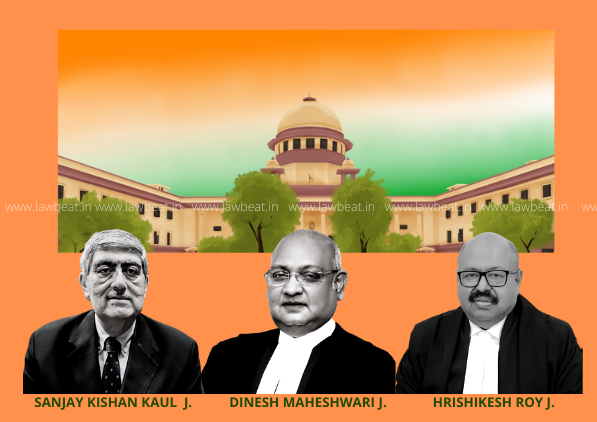Is Paying Compensation To Victim As Pre-Requisite To Grant Of Bail Dispensation of Justice? Supreme Court To Examine

Is the court doing justice if it directs an accused to pay compensation to victims as a condition to grant bail? The Supreme Court will examine this issue raised in a special leave petition filed against the oral order of the Gujarat High Court.
The Gujarat high court while granting bail to the accused in a murder trial on 15.12.2020 observed,
“Considering the nature of allegations made against the applicants in the FIR, without discussing the evidence in detail, prima facie, this Court is of the opinion that this is a fit case to exercise the discretion and enlarge the applicants on regular bail on condition that the applicants shall deposit Rs. 2 lakhs each towards compensation to the victim(s) before the learned trial Court within a period of three months.”
It was contended in the Supreme Court before the bench of Justices Sanjay Kishan Kaul, Dinesh Maheshwari, and Hrishikesh Roy,
“the provisions which appear to have been relied upon in the impugned order i.e. Sections 357 and 357-A of the Criminal Procedure Code would apply only at the stage of conviction and not at the stage of grant of bail so far as payment of compensation to the victims are concerned.”
The SC while issuing a notice returnable within 2 week stated,
“We would like to examine the aforesaid issue as also the issue whether this is a fit case for grant of bail at all to the petitioners.”
CrPC Section 357A - Victim compensation Scheme
When the compensation awarded Under Section 357 is not adequate for such rehabilitation, or where the case ends in acquittal or discharge and the victim have to be rehabilitated, then section 357A comes into picture and the court may direct the state to pay the compensation to victim.
[Ins. by Act 5 of 2009, s. 28 (w.e.f. 31-12-2009]
(1) Every State Government in co-ordination with the Central Government shall prepare a scheme for providing funds for the purpose of compensation to the victim or his dependents who have suffered loss or injury as a result of the crime and who require rehabilitation.
(2) Whenever a recommendation is made by the Court for compensation, the District Legal Service Authority or the State Legal Service Authority, as the case may be, shall decide the quantum of compensation to be awarded under the scheme referred to in sub-section (1).
(3) If the trial Court, at the conclusion of the trial, is satisfied, that the compensation awarded under section 357 is not adequate for such rehabilitation, or where the cases end in acquittal or discharge and the victim has to be rehabilitated, it may make recommendation for compensation.
(4) Where the offender is not traced or identified, but the victim is identified, and where no trial takes place, the victim or his dependents may make an application to the State or the District Legal Services Authority for award of compensation.
(5) On receipt of such recommendations or on the application under sub-section (4), the State or the District Legal Services Authority shall, after due enquiry award adequate compensation by completing the enquiry within two months.
(6) The State or the District Legal Services Authority, as the case may be, to alleviate the suffering of the victim, may order for immediate first-aid facility or medical benefits to be made available free of cost on the certificate of the police officer not below the rank of the officer in charge of the police station or a Magistrate of the area concerned, or any other interim relief as the appropriate authority deems fit.
It was also held in the case of,
Jaffar Ansari @ Jafar Ansari vs The State Of Jharkhand on 3 March, 2020
That the payment of ad-interim victim compensation under s 357A, that too without any reason and support of law, cannot be made a condition for grant of bail.
Case title: Dharmesh @ Dharmendra @ Dhamo Jagdishbhai @ Jagabhai Bhagubhai Ratadia Vs. State Of Gujarat
Access Copy of the Order Here
